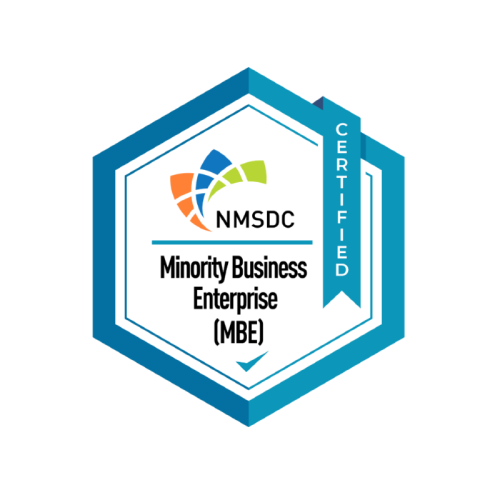Most enterprises don’t fail because of poor planning. They fail because their IT teams are stretched too thin.
The global market for managed services was valued at $390.21 billion in 2025 and is projected to reach $642.57 billion by 2030, proof that enterprises are shifting away from traditional in-house models toward outcome-driven partnerships.
Modern Managed Services Providers go beyond reactive support. They offer on-demand expertise without the hiring burden, predictable pricing aligned with business outcomes, embedded cybersecurity, and scalable support that grows with your enterprise.
Enterprises report measurable gains, from improved hybrid workforce efficiency to faster time-to-resolution after MSP engagement. Continue through our breakdown of the top 8 advantages to see how you can unlock these benefits.
Benefits Of Enterprise IT Managed Services
1. Focus on What Drives Growth
As your business scales, so does IT complexity, growing workloads, expanding endpoints, and rising support needs. Internal teams often hit capacity limits, leading to performance bottlenecks, burnout, and non-technical staff stepping into IT roles.
A well-structured Managed Services Provider (MSP) helps you avoid this.
- They offload routine tasks like system monitoring, patch management, and endpoint support, so your core team can stay focused on high-impact initiatives like infrastructure modernization, AI integration, and cloud migration.
With the right MSP, you reduce operational strain, maintain agility, and stay aligned with long-term tech goals, without sacrificing stability.
2. Get the Expertise You Need
IT teams face growing workloads, talent shortages, and shrinking timelines. The problem often isn’t strategy, it’s the lack of hands-on expertise to keep pace.
From managing hybrid cloud to scaling secure AI systems, most internal teams can’t cover it all.
Hiring is slow and costly.
- The Society for Human Resource Management (SHRM) reports that bringing a new employee on board typically costs around $4,700 per hire.
- A Managed Services Provider fills that gap. Get access to certified cloud engineers, DevOps talent, and automation experts, when and where you need them.
It’s focused support without adding headcount, helping your team move faster and stay focused on outcomes.
3. Control Costs Without Sacrificing Capability
IT overspend often stems not from poor budgeting but from delays in hiring, skill shortages, and resource misalignment.
- As many leaders admit, “We’re not overspending, we’re stretching the wrong resources too far.”
- A Managed Services Provider changes that. Instead of hiring for every specialized need, you get on-demand access to the right skills, when and where you need them.
- With hybrid onshore-offshore delivery, MSPs reduce costs while maintaining speed and quality.
- Fixed SLAs turn unpredictable IT costs into a stable operating expense, giving you better financial control and more freedom to invest in strategic initiatives like AI and automation.
4. Expand IT Agility on Demand
For many enterprises, IT overspend isn’t due to reckless budgeting, it stems from resource misalignment. Delays in hiring, skill shortages, and constant incident management stretch teams thin.
- Managed Services address this with precision. Instead of filling every niche role with full-time hires, you get elastic access to certified experts when and where you need them.
- Hybrid onshore-offshore delivery models drive faster turnaround at a lower blended cost, without compromising performance.
- More importantly, clear SLAs shift IT from unpredictable capital expenditure to a stable operating model.
- That means fewer budget shocks, better forecasting, and more bandwidth for high-value innovation.
5. Ensure Always-On IT Support
With a Managed Services Provider (MSP), availability isn’t a variable, it’s built into the engagement model.
- Leading MSPs offer 24/7 monitoring, incident response, and on-call escalation as part of flexible service packages.
- These often include options for after-hours support, weekend coverage, and timezone-specific staffing to align with global operations.
- When evaluating MSPs, prioritize those with proven experience in multi-region support, follow-the-sun models, and well-defined escalation SLAs.
- This ensures your enterprise infrastructure remains protected, responsive, and compliant, regardless of time or geography.
6. Avoid Costly Downtime
One of the key advantages of partnering with a Managed Services Provider (MSP) is the shift from reactive to proactive IT management.
- Through continuous remote monitoring and diagnostics, MSPs detect and resolve issues before they disrupt operations.
- This proactive maintenance approach minimizes unplanned outages and keeps systems performing optimally.
- Considering that unplanned downtime can cost enterprises up to $9,000 per minute, the financial impact adds up quickly.
- An experienced MSP helps mitigate this risk, not only by preventing problems but also by ensuring rapid recovery when disruptions occur.
- With expert-led backup and disaster recovery services, MSPs restore operations efficiently, preserving both revenue and reputation.
7. Gain a Dedicated Point of Contact
Partnering with a Managed Services Provider (MSP), you won’t have to navigate rotating personnel or re-explain your IT environment.
Instead, you’re assigned a dedicated Customer Success Manager (CSM) who understands your systems, workflows, and strategic goals.
- Acting as your primary liaison, the CSM coordinates with internal teams and third-party vendors, streamlining communication and ensuring prompt resolution of issues.
- In the event your CSM is unavailable, a predefined escalation path and designated backup contact ensure seamless continuity, so your support never misses a step.
- This structure fosters accountability, reduces friction, and reinforces long-term partnership success.
8. Strengthen Security and Regulatory Readiness
Enterprise platforms like Dynamics 365 process vast volumes of business-critical and regulated data every day, data that must be secured and maintained in full alignment with industry-specific compliance mandates.
- While Managed Service Providers (MSPs) don’t replace your internal compliance or legal teams, they play a vital supporting role.
- A trusted MSP collaborates with your stakeholders to understand applicable regulatory requirements, such as HIPAA, GDPR, or SOC 2, and implements the necessary controls, patch management, and continuous monitoring to help ensure your systems operate within those compliance boundaries.
Make Managed Services Work for Your Enterprise
As demands increase, across platforms, time zones, and compliance rules, businesses find themselves spending more time maintaining systems than improving them. The result? Slowed progress, higher risk, and missed opportunities.
What’s often missing isn’t tools, it’s the right operating model.
Many enterprises invest in technology but lack a structure that helps them absorb change, scale confidently, and stay aligned with business goals.
At Sage IT, our Managed Services are built around real business priorities. Through our MOST™ framework (Manage, Optimize, Save, Transform), we help reduce operational friction, stabilize systems, and align technology with business goals.
Our clients use Managed Services to:
- Keep internal teams focused on growth-driving work
- Avoid unplanned costs tied to downtime and delays
- Strengthen infrastructure without expanding headcount
- Maintain system stability while advancing digital goals
You don’t need more tools. You need a model that works.
Make the shift on your terms, at your pace, with stability, scale, and results you can trust.













